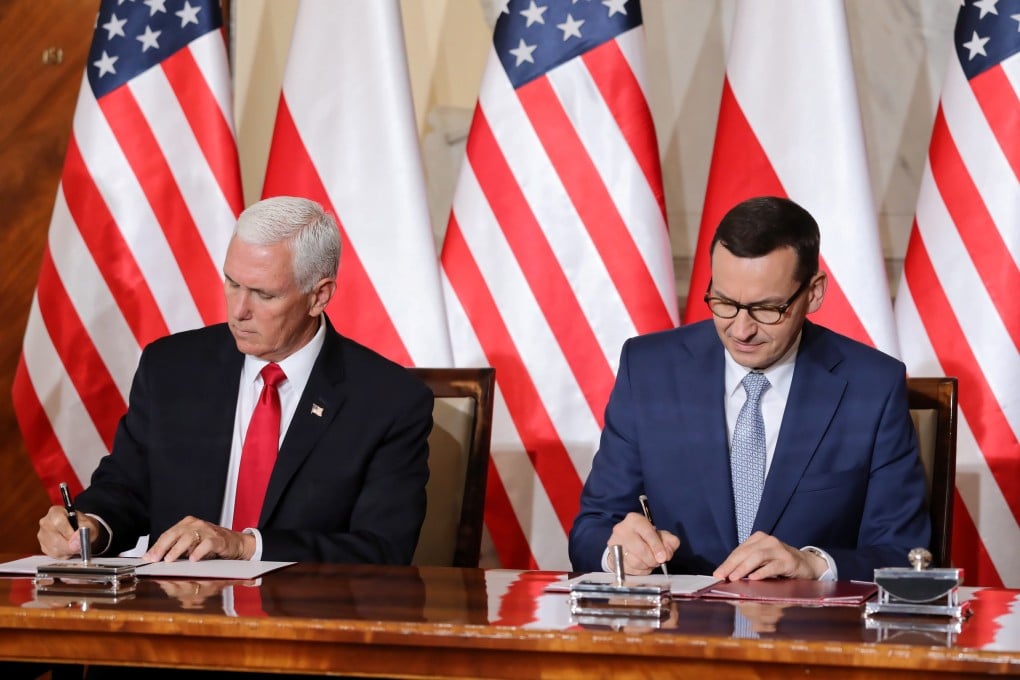US and Poland sign 5G security agreement as part of effort to block Chinese telecoms giant Huawei from European networks
- US Vice-President Mike Pence and Poland’s Prime Minister Mateusz Morawiecki signed the deal on Monday

The US and Poland agreed Monday to a deal designed to secure 5G wireless networks in the European country, a move that could result in blocking Huawei Technologies and other Chinese telecommunications firms from its networks.
The deal with Poland comes as the US has been courting companies to reject Chinese technology in their next generation of wireless networks, telling allies it could put their citizens’ data at risk of espionage.
It was signed by US Vice-President Mike Pence, who is visiting Warsaw for a ceremony commemorating the 80th anniversary of the second world war, and Poland’s Prime Minister Mateusz Morawiecki.
“We believe that all countries must ensure that only trusted and reliable suppliers participate in our networks to protect them from unauthorised access or interference,” according to the declaration, which does not single out China or any companies.

It stipulates that suppliers should be given a “rigorous evaluation”, including whether they are controlled by a foreign government, and be subject to “independent judicial review”.
They would also be vetted on whether they have a transparent ownership structure, a “record of ethical corporate behaviour” and if they’re “subject to a legal regime that enforces transparent corporate practices”.